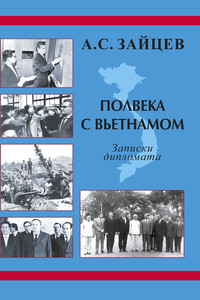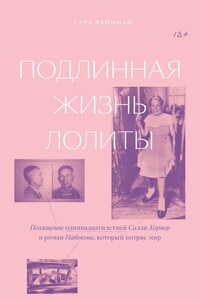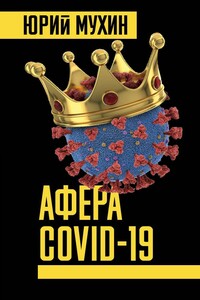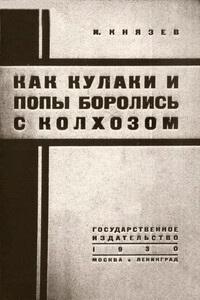The Boy Scouts In Russia - [39]
Fred thought of Russian generals in the war with Japan who might have changed the whole course of that conflict had they had such ideas. But he said nothing of this. Russian soldiers were mindful of that disastrous war, he thought. And Fred had an idea that before this far greater struggle was over, the world would have been forced to forget the failures of Manchuria. Men who fought as he had seen Russians do were not going to be beaten again.
Fred was mounted now on a big, rawboned horse that had lost its Uhlan rider. He was so tired that he was swaying in his saddle, and the Russian noticed this.
"Keep awake a little longer," he said, cheerily. "We haven't very much further to go. In half an hour, I think, you can be in a real bed, with sheets and blankets."
"I don't need anything like that," said Fred, rousing himself and smiling. "I think I could sleep on a board that was studded with nails! And I know that they could fight a battle all around me to-night without waking me up when I once get to sleep."
"I'd like to let you stop here-we are within our lines now-but I know the staff will want to see you and ask a few questions. And you have done so much already for Russia that I believe you will want to do that much more before you rest."
"Oh, a few minutes more or less won't make any difference!" said Fred. He yawned hugely. "As long as I'm awake, I can make myself stay awake. If I once let go, though, I promise you I'll be hard to rouse!"
There were more Russians about here than Fred had supposed. It was plain that since Ivan had had any information as to the conditions here, re-enforcements had been brought up, for it was not through outposts that they were riding, but through a large body of troops. Tents stretched in all directions and fires were numerous, dotting the fields like stars. There were no woods here; it was open country again. To the left Fred caught a glimpse of the silver sheen of a river reflecting the starlight.
"How far are you going to take me?" asked Fred.
"To headquarters. We have less than half a mile to ride now. The general will be glad to see you."
The Russian chuckled, and there seemed to be a hidden meaning in his laugh. At any other time, when he was less weary, Fred would have noticed that. He would have wondered at it, at least; he might even have guessed its meaning. But now he only asked, quite idly: "Who is in command of the troops here?"
"You will soon know," said the Russian, repeating his chuckle.
Fred did, indeed, soon get the answer to his question. They rode up to a small farmhouse, ablaze with light, late as it was. The place was well guarded. The Russian officer slipped off his horse.
"Wait one minute," he said. He went, and returned at once. Then he led the way inside. And Fred, all weariness banished by the sight, stared into the cold, evil eyes of Mikail Suvaroff, wearing his general's uniform. CHAPTER XVIII
THE GREAT WHITE CZAR
There was a moment of absolute, chilling silence; the sort of silence that, in the old phrase, can be felt. For just an instant it was plain that Mikail Suvaroff did not recognize the nephew he hated. But then he knew him, and a flash of cold, malignant hatred lit up his eyes, while his lips curved in a curious, sneering smile.
"So-it is you?" he said. "I thought I had not seen the last of you on the platform at Virballen! Lieutenant, you may leave us."
"Yes, general," said the lieutenant who had rescued Fred. He was plainly puzzled and confused. "I did not tell your kinsman that you were in command here. I thought he would be delightfully surprised by being confronted with you suddenly. But-"
"Exactly! You were quite right, lieutenant. And now you may leave us!"
The lieutenant flushed at the rebuke, saluted stiffly, and left the room.
Fred was alone with his uncle.
"You are brave, at least," said Mikail, presently. "That will, perhaps, be a comfort to you later. Yet you were not well advised to serve the Germans as a spy. They have not been able to save you from me this time, you see. It is not a case this time of the station at Virballen, with the superiority of numbers on their side for the moment."
"It is your Cossacks who saved me from the Germans," said Fred. "I have been a spy-but it has been in the interest of Russia. General Alexander Suvaroff and his son can tell you that."
"Perhaps," said Mikail, his eyes and mouth fixed, so that no one could have guessed what was in his mind. "It is strange that you feel forced to call upon those who cannot say anything for or against you-since they are in the hands of the Germans."
Inspiration came suddenly to Fred, and he said nothing. He gave his uncle stare for stare.
"Well, what have you to say?" said Mikail, at last. "What defence have you, spy?"
Still Fred said nothing, and he saw the veins in Mikail's hands swelling with anger.
"So?" he said, when he understood that Fred would not speak. "Well, there will be a way to make you talk, doubtless. I might have you shot now-or hung. But you are my nephew. You shall have the fairest of trials, for it must not be said that I did not see that you were well treated!" He chuckled ominously. Then he raised his voice. In answer to his call two officers came in.

В основу книги положены личные впечатления автора о командировках во Вьетнам в период 1961–2011 гг. Вошедшие в сборник очерки основаны на малоизвестном широкому читателю фактическом материале, это своеобразный дневник, живое свидетельство непосредственного участника и очевидца многих важных событий в истории отношений наших двух стран. «Эта книга, – пишет автор, – скромная дань любви и уважения героическому, трудолюбивому и талантливому народу Вьетнама, с которым судьба связала меня на протяжении более полувека».В формате PDF A4 сохранен издательский макет.

«Лолита» Владимира Набокова не просто произвела фурор среди современников писателя — она и по сей день остается одним из самых популярных романов в мире. Однако мало кто знает, что сюжет книги во многом вдохновлен историей похищения Салли Хорнер, одиннадцатилетней девочки, о которой Набоков узнал из газет. Сара Вайнман, журналистка и редактор сайта CrimeReads, впервые с 1950-к голов проливает свет на трагическую судьбу Хорнер и описывает обстоятельства, в которых был создан нашумевший роман Набокова.

В книге рассказывается история главного героя, который сталкивается с различными проблемами и препятствиями на протяжении всего своего путешествия. По пути он встречает множество второстепенных персонажей, которые играют важные роли в истории. Благодаря опыту главного героя книга исследует такие темы, как любовь, потеря, надежда и стойкость. По мере того, как главный герой преодолевает свои трудности, он усваивает ценные уроки жизни и растет как личность.

Тайна перевала Дятлова раскрыта. Хамар-Дабан, убийство Зои Федоровой, Бермудский треугольник, смерти Есенина и Маяковского, загадка Ванги, самое жуткое и загадочное преступление в мире. В этой книге вы найдете ответы на тайны, будоражащие воображение людей всего мира.

«Доктор, когда закончится эпидемия коронавируса? — Не знаю, я не интересуюсь политикой». Этот анекдот Юрий Мухин поставил эпиграфом к своей книге. В ней рассказывается о «страшном вирусе» COVID-19, карантине, действиях властей во время «эпидемии». Что на самом деле происходит в мире? Почему коронавирус, менее опасный, чем сезонный грипп, объявлен главной угрозой для человечества? Отчего принимаются беспрецедентные, нарушающие законы меры для борьбы с COVID-19? Наконец, почему сами люди покорно соглашаются на неслыханное ущемление их прав? В книге Ю.
